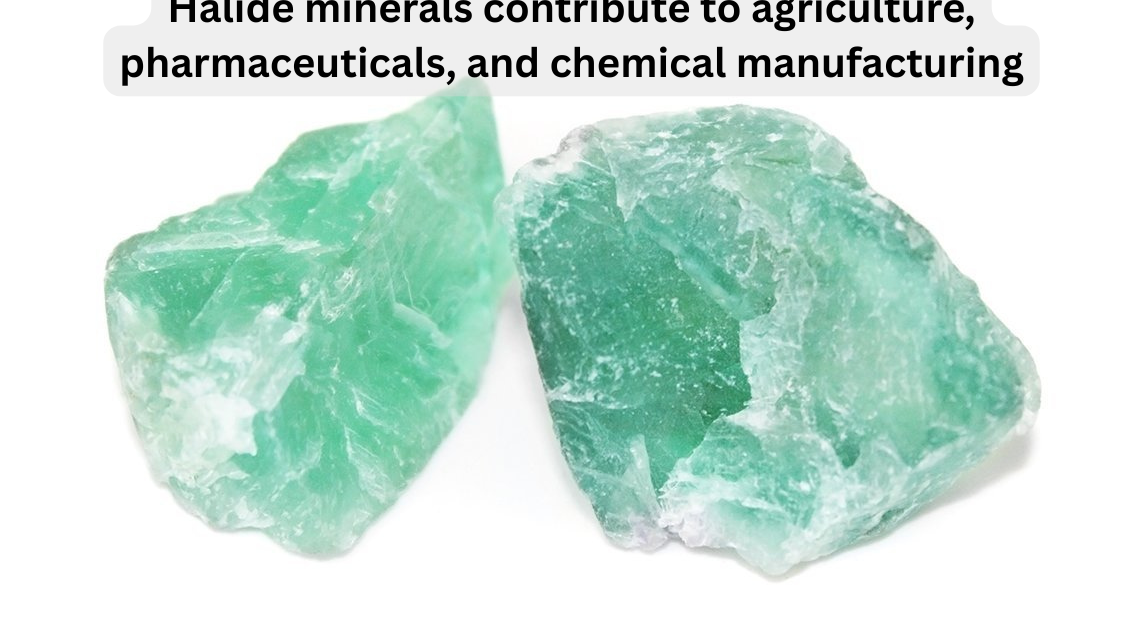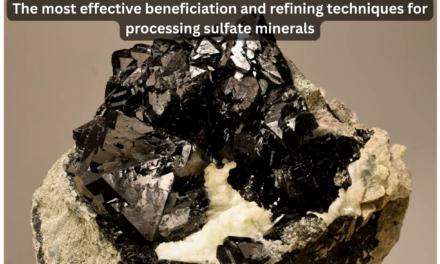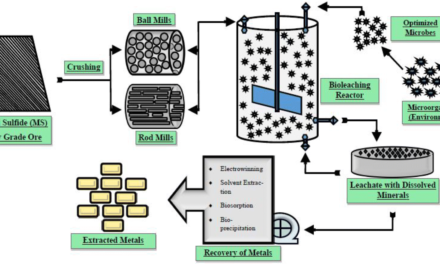Halide Minerals and Their Industrial Contributions
Halide minerals, which contain halogen elements (such as chlorine, fluorine, bromine, and iodine) combined with metals, play a crucial role in various industries, including agriculture, pharmaceuticals, and chemical manufacturing. Their unique chemical properties make them essential raw materials in multiple applications.
1. Role in Agriculture (Fertilizers)
One of the most significant contributions of halide minerals to agriculture is their use in fertilizers. Potassium chloride (KCl), commonly known as muriate of potash (MOP), is a major potassium source for fertilizers. It enhances plant growth, improves crop yield, and increases resistance to drought and disease. The solubility and nutrient availability of potassium chloride make it indispensable for soil fertility management.
Key Halide Minerals in Fertilizers:
- Sylvite (KCl) – A key source of potassium for fertilizers.
- Carnallite (KMgCl₃·6H₂O) – Used in potassium-magnesium fertilizers.
- Halite (NaCl) – Though not a direct fertilizer, it is used in soil amendments to manage sodic soils.
2. Role in Pharmaceuticals
Halide minerals are essential in the pharmaceutical industry due to their medicinal properties and their use in drug formulations. They serve as raw materials for the production of various medicines and treatments.
Key Halide Minerals in Pharmaceuticals:
- Fluorite (CaF₂) – Used in fluorine-based pharmaceuticals, particularly in toothpaste and dental treatments to prevent cavities.
- Iodargyrite (AgI) & Iodine compounds – Essential for thyroid medication and antiseptics.
- Halite (NaCl) – Used in saline solutions for medical treatments, intravenous (IV) fluids, and electrolyte balance restoration.
Bromine compounds derived from bromargyrite (AgBr) and brine deposits are used in sedatives, anticonvulsants, and antihistamines. Many modern drugs rely on halides for enhanced stability and bioavailability.
3. Role in Chemical Manufacturing
Halide minerals are crucial raw materials in the chemical industry, where they are used in a wide range of chemical processes, from industrial solvents to chlorine production.
Key Halide Minerals in Chemical Manufacturing:
- Halite (NaCl) – Used in the chlor-alkali industry to produce chlorine, caustic soda (NaOH), and hydrogen gas. These chemicals are essential in water purification, plastics (PVC), and detergents.
- Fluorite (CaF₂) – Used in hydrofluoric acid (HF) production, which is a precursor to many industrial fluorine compounds.
- Bischofite (MgCl₂·6H₂O) – Used in the production of magnesium metal and as a fire retardant.
- Bromine compounds – Applied in flame retardants, pesticides, and water treatment chemicals.
Conclusion
Halide minerals play a foundational role in agriculture, pharmaceuticals, and chemical manufacturing. Potassium chloride and related compounds are essential fertilizers that boost agricultural productivity. Fluorine, iodine, and bromine compounds contribute significantly to medical advancements, while sodium chloride and fluorite drive chemical production in various industries. As global demand for food security, healthcare, and industrial chemicals rises, halide minerals will continue to be vital in sustaining these industries. Efficient extraction, sustainable mining, and innovative applications of these minerals will shape the future of their industrial use.
Hashtags
#HalideMinerals #IndustrialMinerals #ChemicalManufacturing #FertilizerProduction #AgricultureMinerals #PharmaceuticalIngredients #HalideApplications #MineralsInIndustry #SustainableAgriculture #PotashFertilizer #SaltMining #ChemicalProcessing #MineralResources #PharmaRawMaterials #IndustrialChemicals #EssentialMinerals #HalideUses #MiningForIndustry #RawMaterialsSupply #SustainableManufacturing







